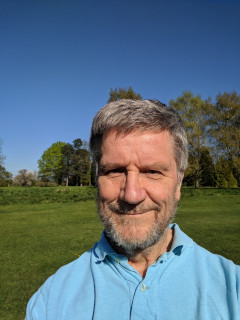About Me

My name is Alan Chandler, and this is my site, “Chandler’s Zen”.
I originally chose the name after associated the book “Zen and the Art of
Motorcycle Maintenance” with a way of building quality into things -
particularly for me at the in the middle of my career when I was worrying about
the quality of software during software development. But really, “Zen” is the
way one comes to understand something by hearing the small stories that surround
it and using those stories to piece together your view of that something.
This is what my blog post are intended to do. Each one of these contains a
little piece of my thoughts on the subjects that interest me and by the reader
reading these they should come to understand who I am.
However its more than that - part of my life mission is to aid the younger generation have their own fufilling lives. I want to include information about things that I’ve learnt along the way and which may be helpful fot those that follow. We shall see! I have been bad at keeping this site up to date with what I am doing.
Of my interests today - I was introduced to the piano when my father went out one morning and bought one. A rather nice Knight K10 upright. He was reasonably advanced having studied and obtained ABRSM Grade 8 and I remember musical evenings with his friends. I also remember my father taking me to concerts in London at the Royal Festival Hall. I of course was encouraged to learn, and I took weekly lessons. But I never practiced and progress was slow. I eventually, when I was just turned 11, took my one and only music exam, ABRSM Grade 3 and just scraped a pass and promply gave up, not to seriously touch the piano again for another 55 years
I started learning about programming when I was 11. My father, a research scientist for the National Coal Board, was exploring if this new fangled thing called computers could be used to control coal mines. I learnt about the existence of computers from him, and I was hooked. I explored writing programs in my head or on bits of paper, because in those days (the early 1960s) there were no such things as Personal Computers. When I turned 17 he had managed to get the budget together to buy a small mini computer and Honeywel 516. With just 16Kb of main memory and the only other peripherals a paper tape reader, a paper tape punch it took up the size of two washing machines with a microwave stood on top. The only other device for human interaction was a teleptype (30 characters a second printer with a keyboard attached), and of course the key switches in the front where you hand entered the bootstrap a bit at a time. And I got to (very briefly) play with it.
But although I never really got to program it myself (it was trying to control a simultation of a coal mine), I did learn its assembly language and I did write software for it in a notebook in pencil. Fortunately in the six form (the final year before univeristy) I did go on a weeks programming course to Kingston University and got to use a real computer, and then because I was in an advanced stream at school that took their A Levels a year early and already had a confirmed university place (Imperial College London) I managed to obtain a temporary job in January 1969 at the National Physical Laboratory programming in Algol.
Although I was interested in Computing, Universities in 1969 did not really offer Computer Science as an option, so I took Electical Engineering. I slanted my subjects towards computing - so Digital Electronics for instance, and a final year project ended up being all about writing software - allowing programmers to edit disk files and to compile from those files rather carry around trays of punched cards and compile from those cards, as had been the case before my project.
In 1972 and newly graduated I joined Logica, a young and up and coming software development house, doing software development projects for its clients. I stayed with them for 37 years until I was finally made redundant in 2009. Of course the nature of the business changed and so did my role, by the end of the 1970s I was a manager and no longer primarily programming for a career, but I continued to keep up with the technology advances and programmed small applications at home as a hobby.
When I was made redundant I decided I would return to programming and quickly found work to keep me busy right up to retirement. But one of my clients still needed support, and I liked the idea of continuing to work occassionally, so I now work 3 days a month supporting their system and the rest of the time doing my two main hobbies, playing the piano and writing software.
